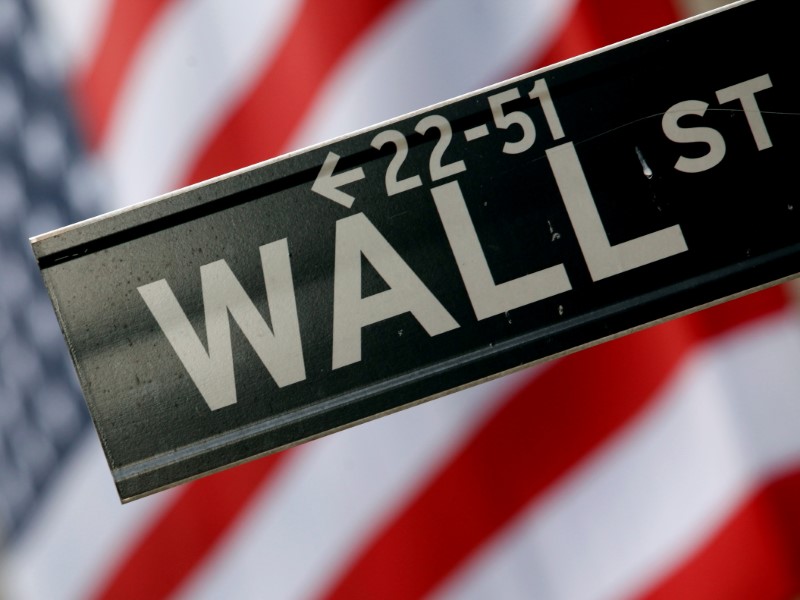[ad_1]

A street sign is seen in front of the New York Stock Exchange on Wall Street in New York, February 10, 2009. REUTERS/Eric Thayer/File Photo
Sept 28 (Reuters) – The S&P 500 and the Nasdaq headed for their worst day in four months on Tuesday as weak consumer confidence data deepened concerns over slowing economic growth, while a surge in Treasury yields hit mega-cap technology stocks.
At 11:53 a.m. ET, the Dow Jones Industrial Average (.DJI) was down 516.54 points, or 1.48%, at 34,352.83.
The S&P 500 (.SPX) was down 88.15 points, or 1.98%, at 4,354.96, and the Nasdaq Composite (.IXIC) was down 408.64 points, or 2.73%, at 14,561.33, both tracking their worst day since early May.
U.S. consumer confidence this month unexpectedly fell to its lowest since February, as soaring COVID-19 infections intensified concerns about the economy’s near-term prospects. read more
The reading, coupled with a rising trade deficit and an expected decline in vehicle sales, brewed fresh concerns about the state of consumption in the country, which is a key driver of economic growth. read more
“It seems like all these headwinds are hitting at the same time – potential higher taxes, higher inflation, uncertainty about the Delta variant, earnings and higher interest rates … are weighing heavily on the indexes,” said Ken Mahoney, chief executive officer of Mahoney asset management.
“Now with the 10-year going hotter, it spooked investors (because) if yields are going to go higher, there’ll be more competition for stocks which something investors really didn’t have to deal with for the last couple of years.”
Progress on U.S government funding negotiations was also in focus with Democrats scrambling to prevent a government shutdown and a potentially economically crippling U.S. credit default on Tuesday while also trying to agree on a mammoth tax and spending package. read more
Concerns over a shutdown, coupled with seasonally weak trends this month, put the S&P 500 on course for its worst monthly drop since October last year.
Treasury yields surged as investors priced in higher inflation in 2021, as well as an eventual interest rate hike by the Federal Reserve next year.
Shares of Apple (AAPL.O), Microsoft Corp (MSFT.O), Amazon.com Inc (AMZN.O) and Google-parent Alphabet Inc (GOOGL.O) dropped between 2.9% and 4%.
These stocks have benefited from the low-interest rate environment since the start of the pandemic.
The Russell 1000 growth index (.RLG) was set for its worst day since February.
Ten of the 11 major S&P sectors declined, with energy (.SPNY) the sole gainer.
Federal Reserve Chair Jerome Powell said the U.S. economy is still far from achieving maximum employment in a hearing before the U.S. Senate Banking Committee, while also flagging concerns over prolonged difficulties in a post-COVID economic reopening. read more
Among other stocks, Ford Motor Co (F.N) rose 1.3% after the U.S. automaker and its Korean battery partner SK Innovation (096770.KS) said they would invest $11.4 billion to build an electric F-150 assembly plant and three battery plants in the United States. read more
Declining issues outnumbered advancers for a 5.13-to-1 ratio on the NYSE and for a 4.57-to-1 ratio on the Nasdaq.
The S&P index recorded 17 new 52-week highs and five new lows, while the Nasdaq recorded 39 new highs and 90 new lows.
Reporting by Sruthi Shankar, Medha Singh and Devik Jain in Bengaluru; Editing by Subhranshu Sahu, Sriraj Kalluvila and Maju Samuel
Our Standards: The Thomson Reuters Trust Principles.
[ad_2]
Source link
